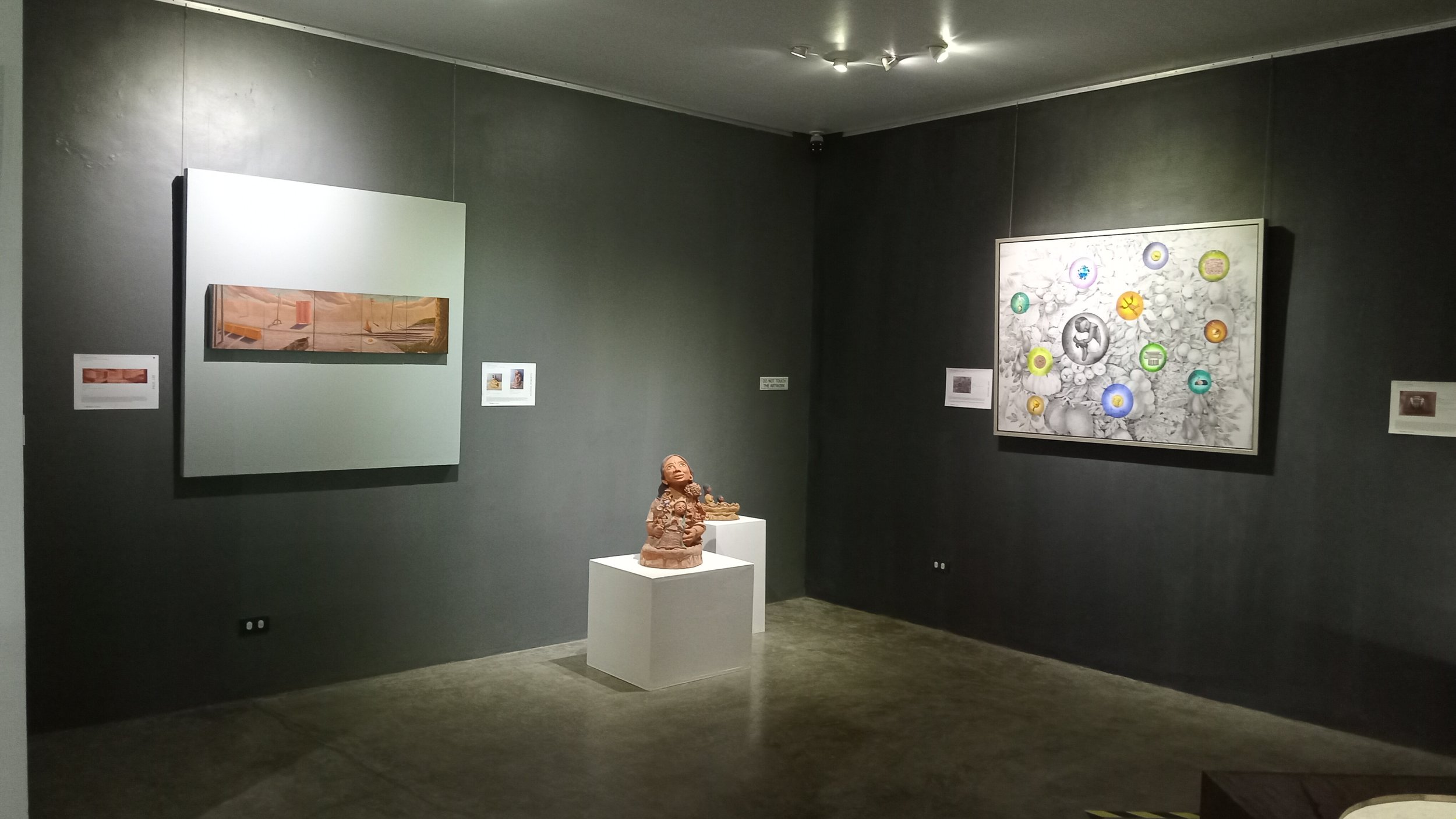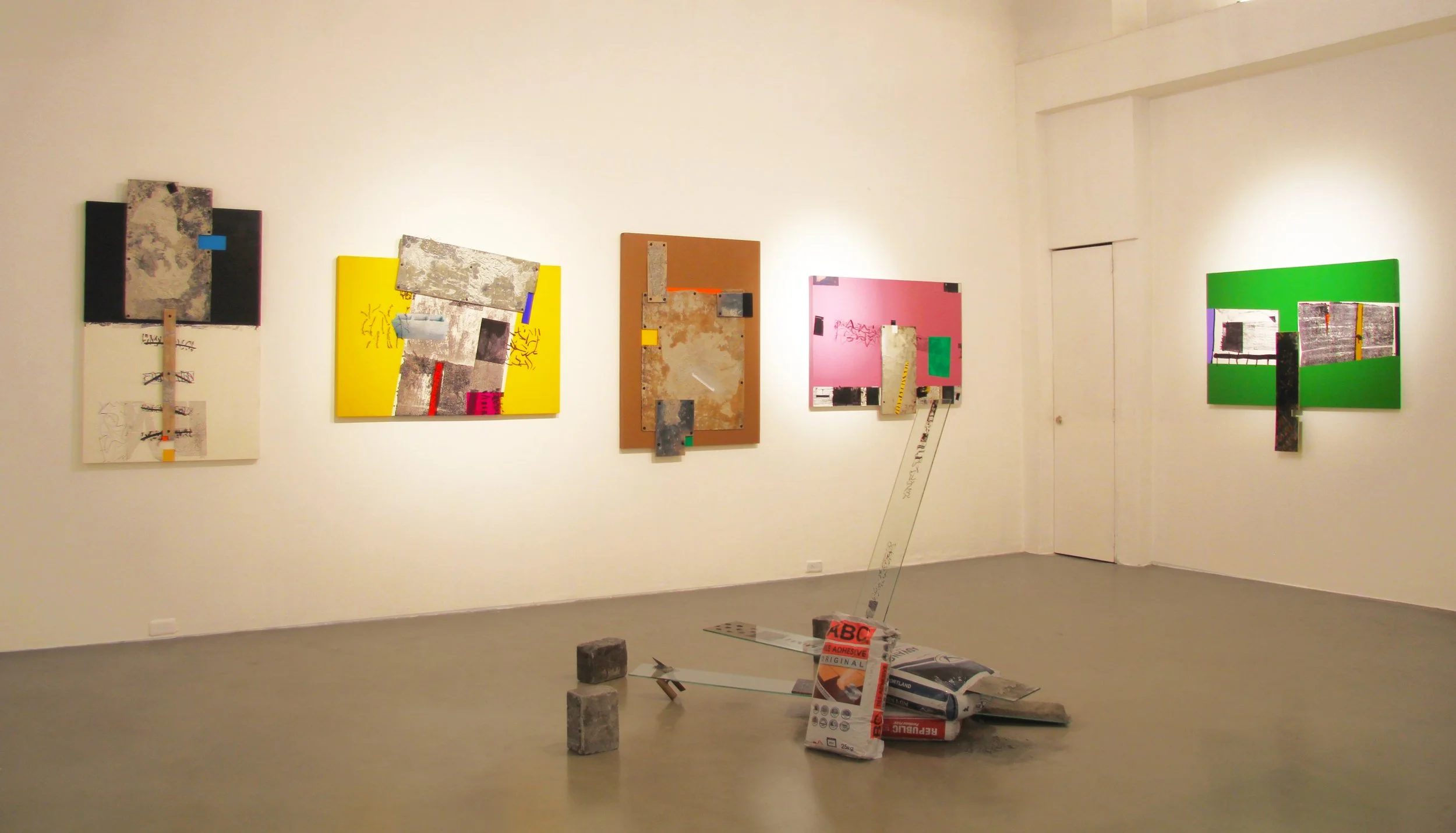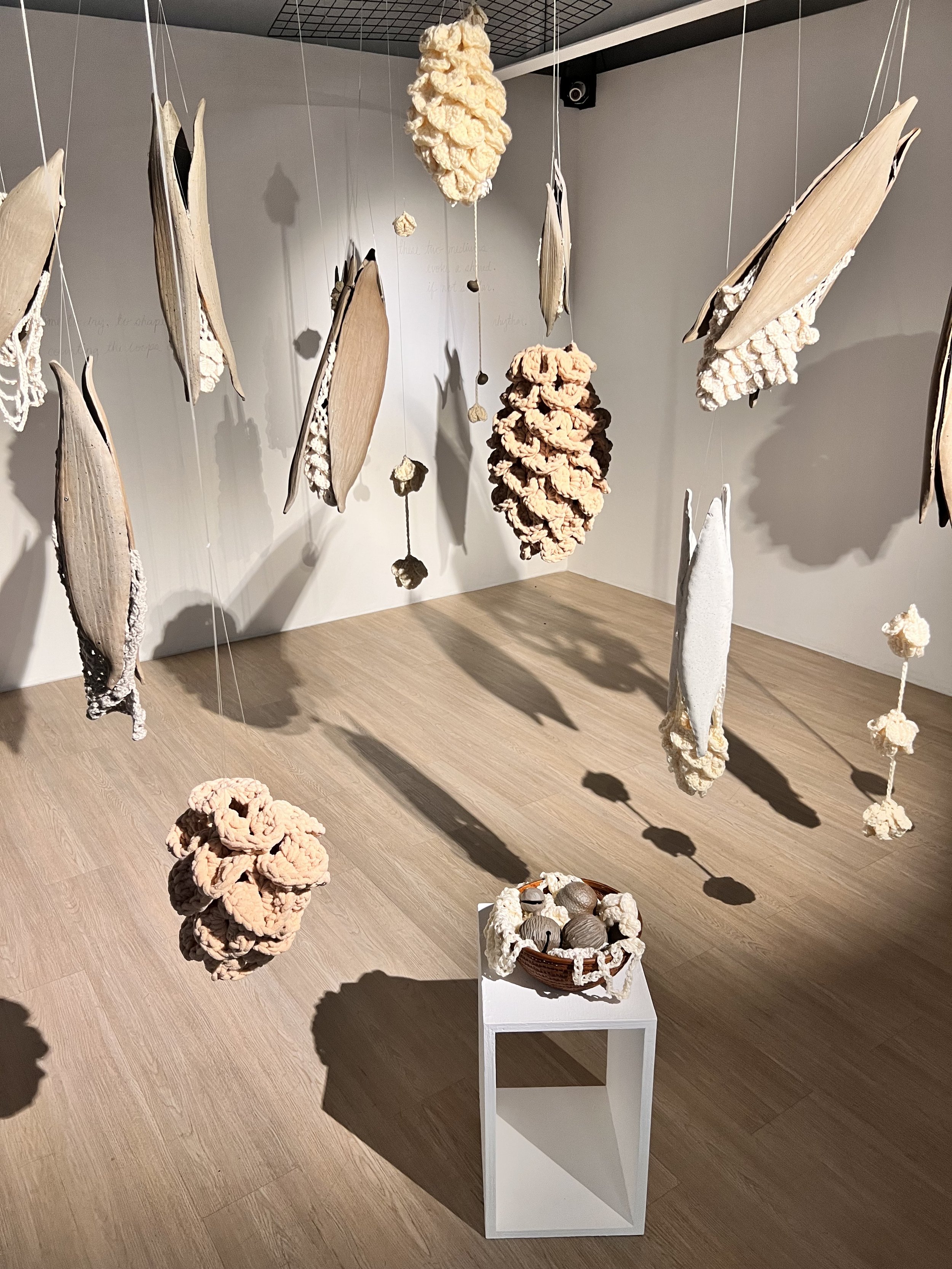Sensing, Struggling, Defining: Exhibitions in July 2023
Art+ rounds up prominent shows for the month of July.
Written by Amanda Juico Dela Cruz
Photos provided by the galleries and museum
July 20, 2023
Senses could be deceiving. Struggles could be invisible. Definitions could be fallible. The artists in the exhibitions this month are anchored with the aim of probing on what is already established, of meditating on the experiences humans have already been desensitized, and on deconstructing and reconstructing concepts that have dictionary definitions.
Installation in BenCab Museum and Tin-Aw Art Projects.
Roberto Acosta, Mike Adrao, Roan Alvarez, Pope Bacay, Ralph Barrientos, Francis Commeyne, Kiri Dalena, Brenda V. Fajardo, Mark Orozco Justiniani, Joy Mallari, Lee Paje, Henrielle Baltazar Pagkaliwangan, Goldie Poblador, Katti Sta. Ana, and Jezzel Wee, “to be sure, the senses deceive”, BenCab Museum and Tin-Aw Art Projects.
Truths and values change over time. They have to. The fifteen artists in the exhibition critique these age-old ideals and offer broader understandings through their drawings, installations, intermedia, paintings, photographs, prints, and sculptures. Conscious of the history of the country and informed by the present-day social struggles, the artists render the tension, tractions, and truths in the process of critiquing and of understanding visible hoping that the viewers will probe on what they think they know about the realities of the world they are living in. Senses are not always reliable. They have to be examined to move forward.
Installation in Giant Dwarf Artspace.
William Ner, “inner compartmentalizations”, Giant Dwarf Artspace.
Everyday objects found had been turned into a visual metaphor for how the artist navigated the complexities of mental health. A spray bottle, a quick-fix solution, is a metaphor to how people often opt to fix difficult emotions quickly. Two spray bottles with its nozzles facing each other are a metaphor to how the artist understand bipolar disorder. Toy dolls like a clown and a Pinocchio wrapped in clear plastic as metaphors to hidden struggles. A blank vinyl toy underneath crumpled fabric represents a mind disturbed by fog. One would notice flowers in the artworks because there is always hope.
Artwork from in Art District, Orange Project, and Off Center Creative Initiatives.
Rafael Paderna, Rodney Martinez, Perry Argel, Angela Silva, Roedil “Joe” Geraldo, Revo Yanson, Neil Benavente, Darel Javier, Olive Gloria, Frelan “Pakz” Gonzaga, Moreen Austria, Michael John “Mikiboy” Pama, Guinevere Decena, Erika Mayo, Brandon Braza, Vincent Sarnate, and Ann Gaurana, “modern Negrense family”, Art District, Orange Project, and Off Center Creative Initiatives.
Installations, mixed media works, photographs, prints, sculptures, and paintings from seventeen local artists from three generations are put together in one show to nuance the definition of a Negrense family given the role of diaspora—families or a member of a family migrating from one’s homeland to different parts of the world and families from different parts of the country finding home in the southern province. The works of art in the exhibition tackles the sociological, psychological, political, and economic effects and struggles. Looming in the background is abandonment, separation, and financial hardships, and how technology could bridge the distance.
Installation in Galleria Duemila.
Joe Bau, “Re-construction”, Galleria Duemila
Painting and sculpture, and advertising and architecture. The artist draws from his background to toy with space and form by intersecting these elements into his art-making. Materials used in building structures like blocks of wood, tiles, pieces of plywood sheets, cement blocks, nails, bolts, and nuts are re-constructed in the exhibition space while cut-outs from widely-available publications like magazines are re-used. Re-construced building materials boast the artist’s skills in sculpture-making, setting the tone of the exhibition. Rigid shapes like squares and rectangles with a pop of color to add life to the already muted tone are painted on the canvases.
Installation in Gravity Art Space.
Jezzel Wee, “To weigh seeds, pulling through”, Gravity Art Space.
Pods and fluffs of kapok tree are suspended in mid-air as if time in a tropical rainforest where it naturally grows has been frozen. In the ecosystem, these are a source of food for bees and for bats. For humans, it is a source of livelihood as they are transformed into stuffing for pillows, mattresses, and upholsteries. This scene is artistically recreated through the painstaking process of ceramic-making and knitting. Kneading the clay, knitting the yarn, waiting for the materials to dry, then counting the loops, the cycle is meditative and chaotic like a life cycle of a kapok tree.
Installation in Mono8 Gallery.
Annie Pacaña, “Break Like a Wave”, Mono8 Gallery.
With the artist’s exhibition “from-out-there-toward-me-and-through-me” running simultaneously in the UP Vargas Museum, her “Break Like a Wave” in Mono8 Gallery could be a supplementary to her project that focuses on the experience of being inside a moving vehicle as a way to navigate the urban life. She refracts the experience of seeing vehicles moving along, buildings being passed by, and lights from lamp posts into linescapes and kaleidoscapes projected on the walls—chaotic scenes of a city rendered artistically. Collaborating with musician Flagio, these scenes are transformed into waves as if one is seeing this world through a car window.






